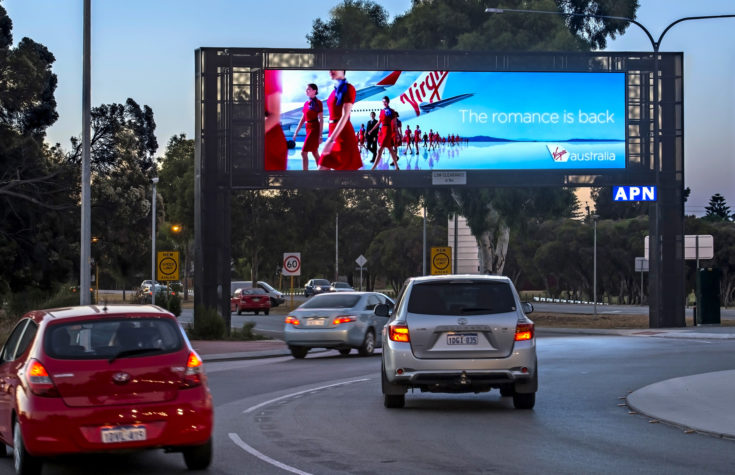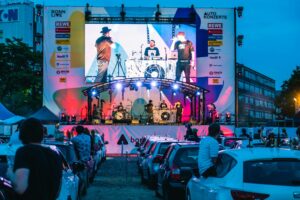
Digital Billboards in Nigeria

Digital Billboards in Nigeria
Digital billboards in Nigeria are rapidly transforming the landscape of outdoor advertising in the country. As urbanization and technological advancements continue to shape the country, businesses are increasingly turning to digital LED boards or displays to capture the attention of their target audiences. We explore the evolution, benefits, challenges, and future prospects of billboard advertising and digital billboards in Nigeria.
Evolution of Digital Billboards in Nigeria
The concept of Outdoor digital advertising Nigeria is not new; traditional billboards have graced highways and city streets for decades. However, the introduction of digital billboards in Nigeria has revolutionized this medium. The first digital billboards began appearing in Nigeria in the early 2010s, primarily in major cities like Lagos and Abuja. As technology has advanced, so too has the sophistication and prevalence of these digital LED boards and displays.
Digital billboards use LED technology to display animated and static advertisements, allowing for dynamic content that can be easily updated. This flexibility means that advertisers can rotate multiple ads throughout the day, maximizing exposure and engagement. Furthermore, the integration of real-time data allows for more targeted advertising based on factors such as time of day, weather conditions, and audience demographics.

Benefits of Digital Billboards in Nigeria
- Enhanced Visibility: One of the primary advantages of digital billboards in Nigeria is their ability to capture attention. The movement and brightness of digital displays make them more eye-catching than traditional static billboards. This increased visibility can lead to higher brand recall and consumer engagement.
- Dynamic Content: Advertisers can update their content in real-time, allowing for timely promotions, seasonal campaigns, or even responses to current events. This adaptability makes LED displays and digital billboards a powerful tool for brands looking to stay relevant in a fast-paced market.
- Cost-Effectiveness: While the initial investment for digital billboards can be significant, the long-term benefits often outweigh the costs. With the ability to change content without needing to print new materials, businesses can save on production and labor costs associated with traditional billboards.
- Data-Driven Advertising: Many digital billboard systems can gather data on viewer demographics and behavior, enabling advertisers to tailor their messages more effectively. This data-driven approach can lead to higher conversion rates and better ROI on advertising spend.
- Sustainability: Digital billboards are often seen as more environmentally friendly than traditional billboards. They reduce paper waste and can be powered by renewable energy sources, aligning with the growing consumer preference for sustainable business practices.
Challenges Facing Digital Billboards in Nigeria
Despite their numerous benefits, digital billboards in Nigeria face several challenges:
- Regulatory Hurdles: The advertising landscape in Nigeria is governed by various regulations. Navigating these laws can be complex, with requirements varying by state and locality. Misunderstandings or non-compliance can lead to fines or the removal of advertisements.
- High Initial Costs: The cost of digital billboards in Nigeria can be prohibitively high for some businesses, particularly small and medium-sized enterprises (SMEs). While the long-term savings are significant, the upfront investment may deter potential advertisers.
- Technical Issues: Like any technology, digital billboards can experience malfunctions or outages. Regular maintenance and technical support are essential to ensure that advertisements are displayed correctly and consistently.
- Market Saturation: As more businesses adopt digital billboards, the competition for viewer attention increases. Advertisers must continually innovate to stand out in a crowded market, making creativity and strategic planning essential.
The Future of Digital Billboards in Nigeria
The future of digital billboards in Nigeria looks promising. As urban areas continue to grow and technology becomes more accessible, the adoption of digital advertising is expected to rise. Several trends are likely to shape this evolution:
- Increased Integration with Technology: The integration of artificial intelligence (AI) and machine learning will enable more personalized advertising experiences. This could include targeted ads based on real-time audience analysis or location-based promotions.
- Expansion into Smaller Cities: While major cities currently dominate the digital billboard market, there is a growing opportunity for expansion into smaller cities and towns. As infrastructure improves and more businesses seek effective advertising solutions, digital billboards will likely become more widespread.
- Enhanced Interactivity: Future digital billboards may include interactive features, allowing consumers to engage directly with the advertisements. This could involve QR codes or augmented reality experiences that encourage immediate action.
- Focus on Sustainability: As environmental concerns continue to rise, the advertising industry will likely place greater emphasis on sustainable practices. Digital billboards that utilize solar power or eco-friendly materials may become more common.
Digital LED boards are reshaping the advertising landscape in Nigeria, offering businesses innovative ways to reach and engage consumers. While challenges remain, the benefits and future potential of digital billboards make them a compelling choice for advertisers. As technology continues to advance and the market evolves, digital billboards will undoubtedly play a crucial role in the future of outdoor advertising in Nigeria.
